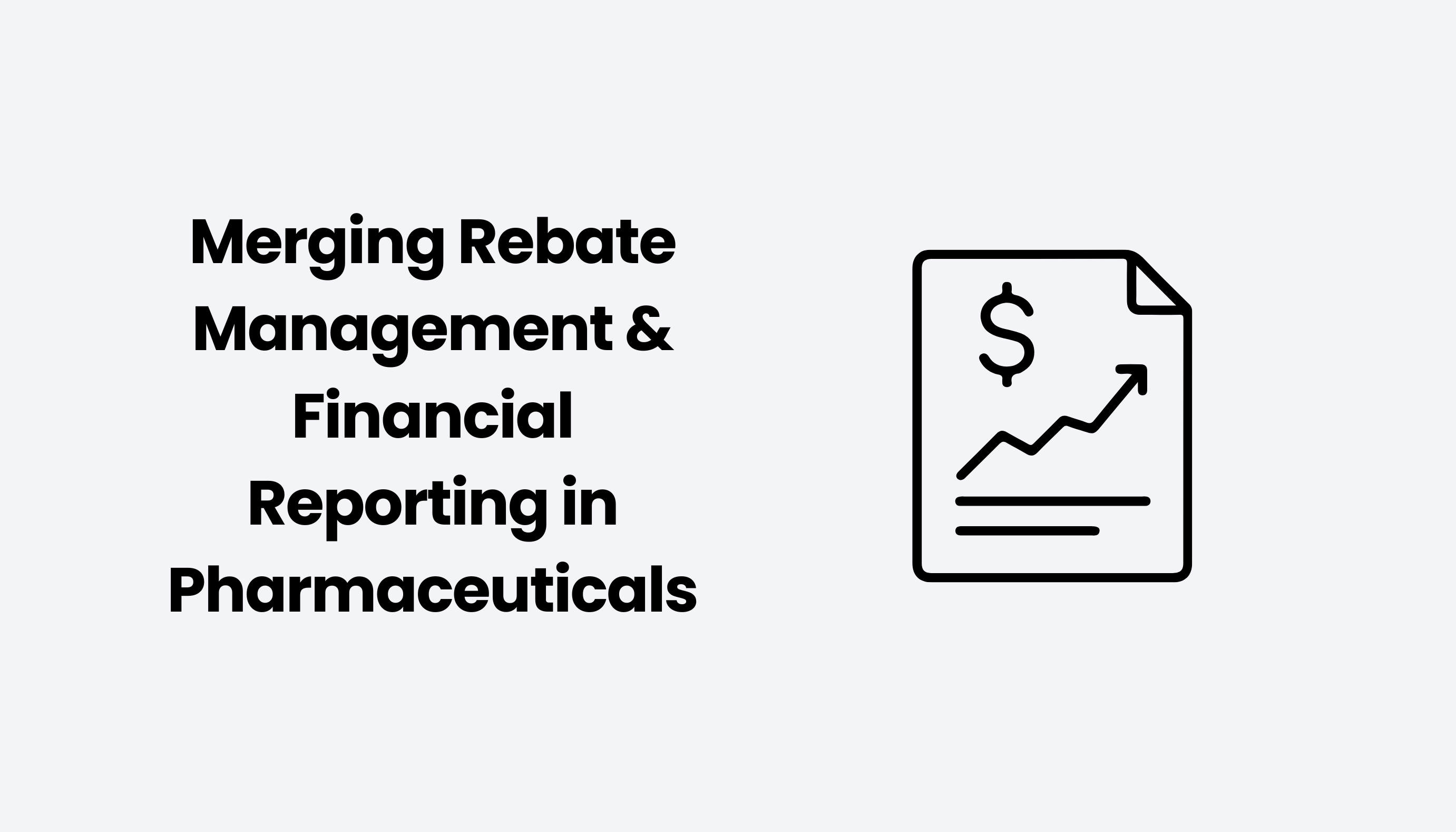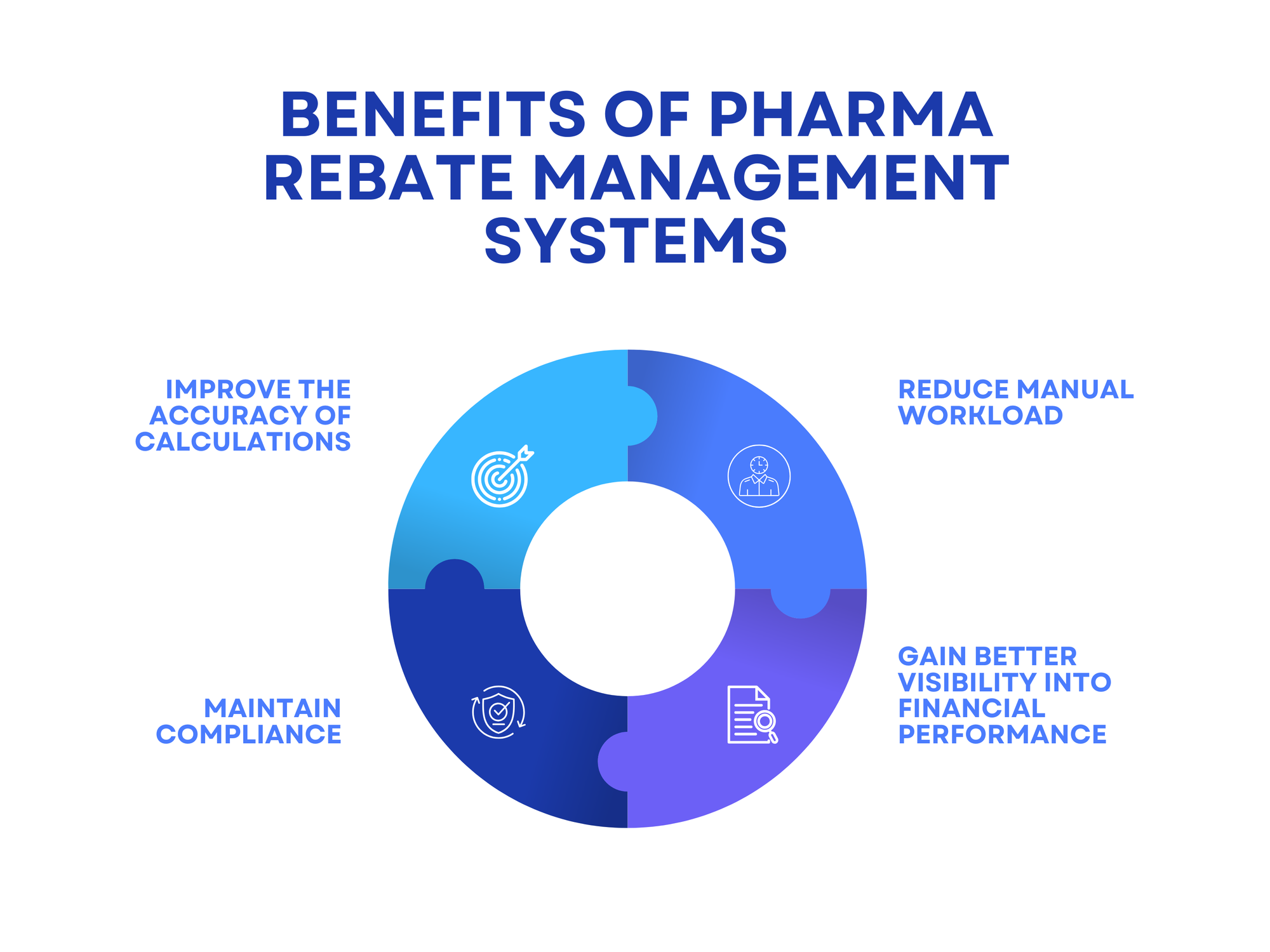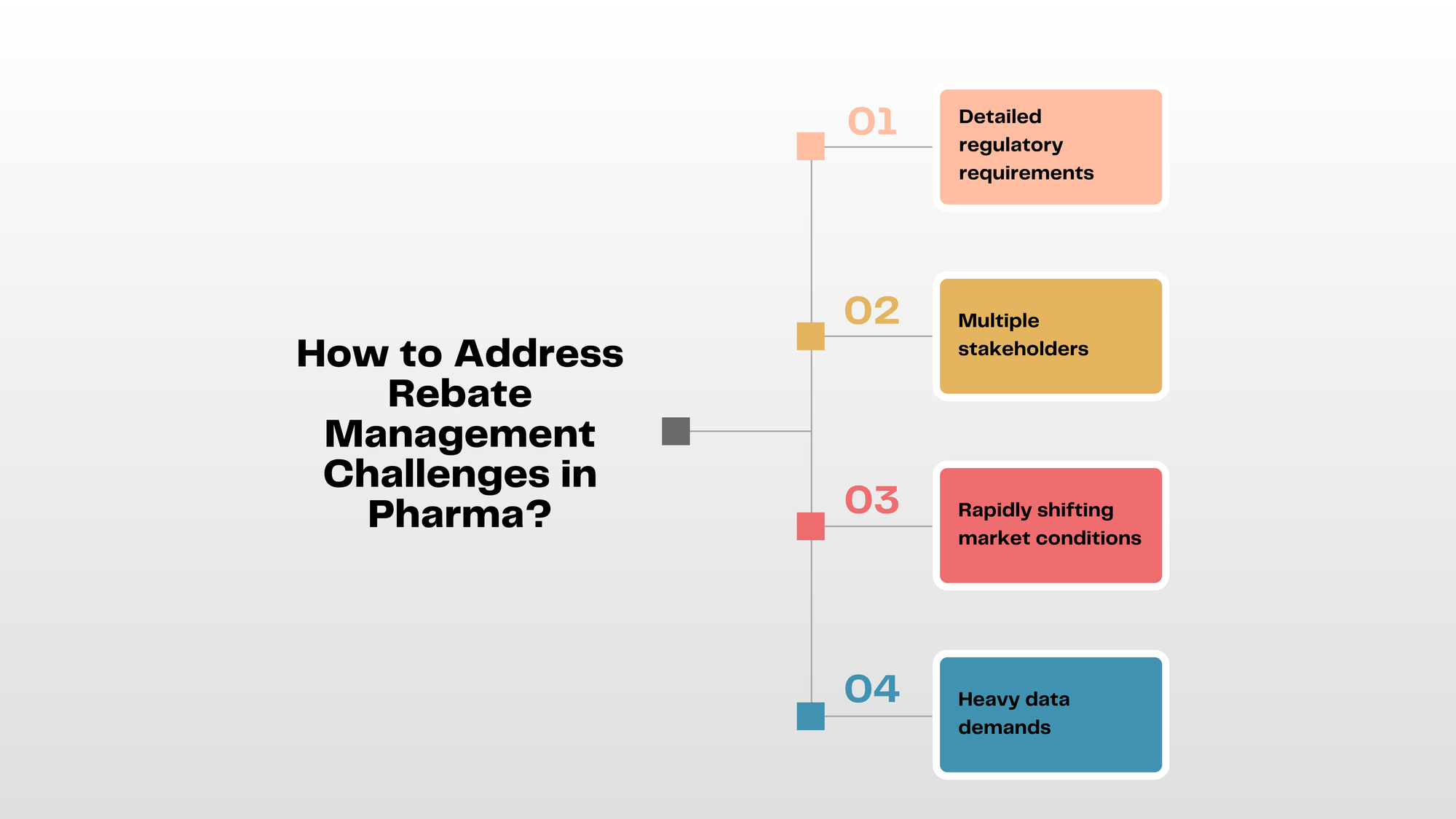Merging Rebate Management & Financial Reporting in Pharmaceuticals

Managing rebates in the pharmaceutical sector is a central financial responsibility. Because rebates affect revenue, margins, compliance, and partner relationships, connecting rebate processes with financial reporting is essential for an accurate picture of business performance.
When rebate activity is aligned with financial systems, companies gain clearer insight into pricing, contractual commitments, and overall financial outcomes. This alignment supports better decision-making, strengthens partnerships, and helps companies stay steady in a complex, highly regulated market.
Table of Contents:
- What is Rebate Management Software in Pharma?
- Types of Rebates in the Pharmaceutical Sector
- How to Track Rebates and Manage Accruals?
- Benefits of Pharma Rebate Management Systems
- How to Address Rebate Management Challenges in Pharma?
Jump to a section that interests you, or keep reading.
What is Rebate Management Software in Pharma?
Rebate management software gives pharmaceutical companies a structured and automated way to handle rebate agreements and transactions. It supports:
- Handling complex rebate rules
- Maintaining accuracy
- Meeting regulatory expectations
- Integrating with core financial systems
Because pharmaceutical rebates often involve intricate calculations, automation reduces manual work and minimizes errors. This also improves transparency in financial reporting and strengthens control over rebate incentive programs.
Types of Rebates in the Pharmaceutical Sector
Rebates influence pricing strategies and purchasing behavior in many areas of the pharma ecosystem. They extend far beyond simple discounts.
Customer Rebates
These encourage loyalty and continued purchasing from healthcare providers or patients. They can also make medications more affordable, supporting adherence to treatment plans.
Supplier Rebates
These involve agreements tied to volume purchases or performance targets. They help manage costs and motivate suppliers to meet agreed-upon milestones.
Understanding both types—and their financial effects—is key to sound financial planning in the industry.
How to Track Rebates and Manage Accruals?
Careful tracking of rebate activity is central to maintaining accurate financial records. Companies must:
- Record rebate commitments
- Monitor transactions
- Accrue amounts correctly
- Present accurate financial statements
Clear records and consistent monitoring help avoid misstatements and ensure compliance with internal and external reporting requirements.
Benefits of Pharma Rebate Management Systems

A system designed specifically for pharmaceutical rebates helps companies:
- Improve the accuracy of calculations
- Maintain compliance
- Reduce manual workload
- Gain better visibility into financial performance
This supports stronger customer and supplier relationships, smoother operations, and healthier margins.
Boost Profitability and Margins
Rebate management directly influences overall profitability. With well-structured programs, companies can:
- Offer competitive pricing
- Maintain strong margins
- Use data to shape rebate plans
- Manage cash flow with more predictability
Rebates shape the actual value of each sale. Ignoring them can distort revenue and long-term forecasts. By accounting for all incentives—rebates, volume discounts, loyalty programs, and other allowances—companies gain a clearer view of their financial standing.
Ensure Accuracy and Compliance in Rebate Processing
Accuracy is a non-negotiable requirement in this heavily regulated industry. Adhering to rebate rules involves:
- Keeping updated records
- Conducting regular audits
- Using technology to track rebate activity
This reduces the risk of errors and protects against regulatory or financial fallout.
Build Customer Loyalty
Rebates help make treatments more affordable and encourage healthcare providers and patients to return to the same brands. When rebate programs are structured carefully and aligned with commercial goals, they support long-term relationships and reinforce a positive market presence.
How to Address Rebate Management Challenges in Pharma?

Rebate management in this sector is complex due to:
- Detailed regulatory requirements
- Multiple stakeholders
- Rapidly shifting market conditions
- Heavy data demands
Meeting these challenges requires capable software, coordination across departments, and strong awareness of market and compliance expectations.
Rebate Management as a Strategic Component of Sales and Pricing
Rebates influence prescribing behavior, support pricing flexibility, and shape sales outcomes. When rebate strategies match business priorities, companies can guide customer decisions and reach specific market positions more reliably.
Negotiation and Management of Pharmaceutical Rebates
Strong rebate agreements depend on understanding:
- Market conditions
- Product value
- Competitive offerings
After agreements are set, ongoing monitoring is essential to confirm that all parties are meeting terms and that rebate programs remain aligned with market changes.
Supporting Finance and Accounting with Rebate Management Software
Rebate management platforms help finance and accounting teams by:
- Tracking and calculating rebates
- Improving accuracy in financial records
- Enabling real-time reporting
- Automating payment-related processes
This reduces manual workload and supports more reliable financial planning.
Conclusion
Integrating rebate management with financial reporting gives pharmaceutical companies a clearer, more reliable foundation for strategic decisions. With advanced tools, organizations can handle complex rebate programs with greater consistency and accuracy.
This connected approach supports compliance, strengthens financial reporting, and contributes to steady long-term performance—while maintaining a strong commitment to patients, providers, and partners.
